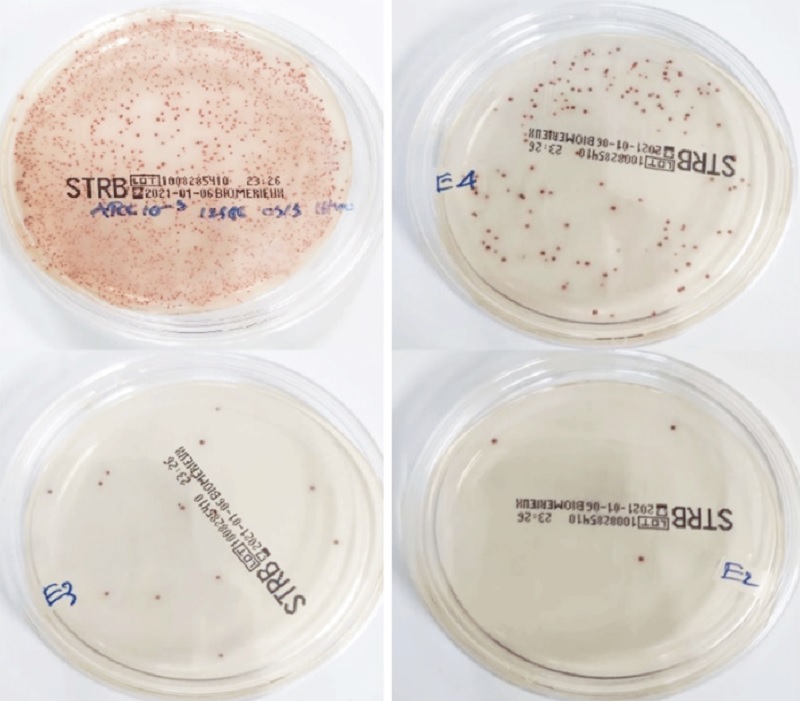The new procedure takes less than 1.5 hours to detect group B strep in pregnant women
The real-time PCR process, detected group B streptococcus (GBS) in pregnant women, developed by the authors of the Ho Chi Minh city University of Medicine and Pharmacy Hospital. It is fast, accurate, and reasonably priced.

GBS colony identification test. Photo: NNC
GBS are aerobic Gram-positive bacilli, causing pharyngitis, pneumonia, skin wound infections, sepsis,... This is the leading infectious agent and the main cause of infant mortality.
Early GBS infection causes pneumonia, sepsis, and meningitis. Mother-to-child transmission can occur when a pregnant woman has a vaginal or rectal GBS infection at the time of labor or membranes rupture, which is a high and important risk factor for early neonatal infection. Worldwide, an estimated 150,000 babies are stillborn and die in infancy each year due to GBS.
Therefore, rapid and accurate detection of GBS infection in pregnant women will be helpful in preventing GBS infection more effectively and reducing the burden of disease caused by GBS.
As a result, the improved real-time PCR process helps to detect GBS quickly because the team built it with an accuracy of 96.83%, a sensitivity of 93.94%, a specificity of 97.93%. This result is equivalent to the commercial Sacace kit. Process time is about 87 minutes/sample (faster than using a commercial kit 47 minutes).
According to the authors, the cost of chemicals for a real-time PCR test to detect GBS using a commercial kit is 230,000 VND/test, not including the cost of extraction chemicals. Meanwhile, the cost of chemicals for a GBS test in this study is about 150,000 - 180,000 VND/test. Therefore, the research results can be applied to clinical practice to serve the people with fast, accurate and affordable criteria, meeting the needs of GBS screening when pregnant women go into labor.
The research project of the group of authors has been accepted by the Department of Science and Technology of Ho Chi Minh City and achieved results. The group continues to work towards further research on the distribution of different GBS serotypes, serving the purpose of GBS bacterial clinical epidemiology research and as a basis for future vaccine use.